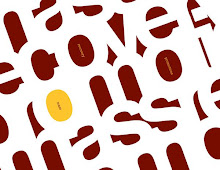
The problem with dance music (electro-pop and the like), for me at least, is that by in large it requires a suspension of intelligent thought in exchange for catchy hooks and dancey beats. Some artists have opted to go a more psychedelic route, MGMT comes to mind, but this feels like cop out to me; ignoring the central issues facing the generation they write songs for. Yet a little band from Dover, NH, Horny Vampyre (yes it’s a ridiculous name) have created a record that is every bit as brilliant as it is pertinent. Their self-titled debut is a dancey concoction of skuzzy electro punk with lyrics that will resound with anyone struggling to get by, both in economic and existential terms, and those who refuse to get down and grow up. Though this band, as well as their label, Hidden Apparatus, seemingly appeared out of nowhere, this is quite honestly the best record I have heard in the better part of a year.
The album begins with the song, “Foreign Home”, which immediately introduces the synth-clap-and-tap electro elements of Horny Vampyre’s music; a mixture of 8-bit Nintendo MIDI, 1980’s Devo, and Atom and His Package-esque synth-lines. The group vocals that define this album come in a minute or so later (there are at least 2 vocal tracks being occupied during every track) with the lines, “And when she goes to her foreign home by the deep boring sea/ she’ll drink cheap wine trying hard to think of me/ and I’ll still be here running this business straight into the ground…” The “here” refers to the dead end town the album’s narrator is perpetually stuck in, despair painted as a landscaped suburbia.
The album pops and beeps into the next two songs, “High Court” and “Rent Money”. The first is an indictment of humankind as being “a miserable mess of secrets/man is a miserable mess of lies,” as well as a personal confession, “And lately I’ve been having trouble looking you in the eye.” “Rent Money” outlines the inequity of low wages vs. the high cost of living and the desire to revert back to adolescence where this problem had not yet presented itself. Mike and Jer (this is all they have listed under band members) both proclaim, “My entire life is split/ between wanting to work here/ and wanting to quit,” and furthermore, “I don’t know about you but I gotta go back to where we lived when we were kids/ to where I first saw you when your clothes didn’t fit.”
Side A ends with, “Think Back”, which expands on the theme of growing up in uncertain times and the inability to really do much about it except look to friends with “big hearts” and “stricken faces” for solace. If Side A functioned as a means to identify the problems facing this generation, Side B is a contentious attack against these problems in the form of a unified front against menial life.
“Drink Deep”, the first track on Side B, is arguably the best song on the album. The beats and synth lines are intoxicating, it is literally impossible to stay sitting down when this song comes on. Then the vocals come in, triumphantly chanting, “drink deep from this goblet of fuck it all/ I wanna remember but I already forgot it all.” You will most likely be first pumping and yelling, “when he saw me smoking he said smoke up smoke up/ when he saw me drinking he said drink up drink up.” In my mind this song challenges Andrew W.K’s “Party Hard” as the reigning champ of best song to party up to.
The next song two songs, “Friendship” and “Our Lungs” are nearly as mind-blowing as the previous. The first of the two declares, “we’re gonna tear this fucking building down,” while the latter worries about growing up and things getting worse, “I’m afraid that all my friends will someday still be working shitty jobs/ that they’re too afraid to quit.”
“Big Life” counters the despair in “Our Lungs” with lyrics about growing up but never losing the drive and ardor of youth, they sing, “When I grow up I wanna burn money do drugs/ never half-ass when it comes to giving hugs.” Maybe it is futile to resist change, in all of its various forms, but this song gives me hope that, while capitalism will continue to exploit far into the future, we may take refuge in both friendship and music.
The record ends in brilliant fashion with the song, “Wet Backyard,” which sums up the major themes of the album in the line, “What’s good for my heart isn’t good for my health”. In just nine songs Horny Vampyre has outlined the grievances of an entire generation and set them to danceable electro-synth beats.
This record is at worst just impressive and at best brilliant, the fact that this 10” is a debut is mind-blowing. My only critiques seem to counter themselves; the vocals at times are not dynamic enough but are always perfect for group sing-alongs and the synth lines can get repetitive but are so good that is seems to be worth the repetition. If you don’t have a record player, it’s worth buying one just to play this record.
